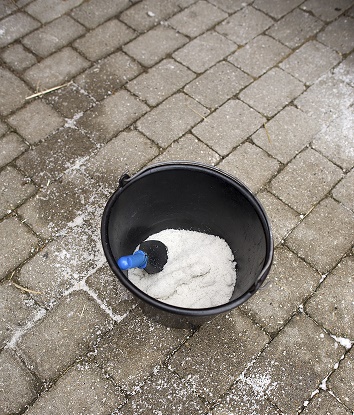
During the cold season, salting is a common practice for melting snow and ice on paved roadways and walkways. Doing so helps to melt the snow and ice, making the areas less hazardous for pedestrians and vehicles.
Homeowners also use salt to melt snow and ice on their driveways, walkways, and front and back stoops and porches. But how does salt affect your pavement? Is it harmless, or can salting cause problems over time? Before you salt, here’s how salting affects asphalt and concrete pavements:
Asphalt
If the asphalt has been properly installed, salt will not cause deterioration. The components of asphalt are proportioned in a way that allows it to withstand the cycle of freezing and thawing. Additionally, less salt applications are necessary, as asphalt does not freeze too quickly.
Concrete
Salt can cause deterioration in concrete surfaces. This is because the acidity of the salt breaks down the bonds of the particles that hold the material together. Unfortunately, concrete also freezes quickly, and therefore requires more salt to be applied than other paved surfaces. Continued and excessive salt application to concrete speeds up deterioration.
HMA Contracting can help you choose the type of pavement that is right for the area you need paved. Contact us today to get started!
